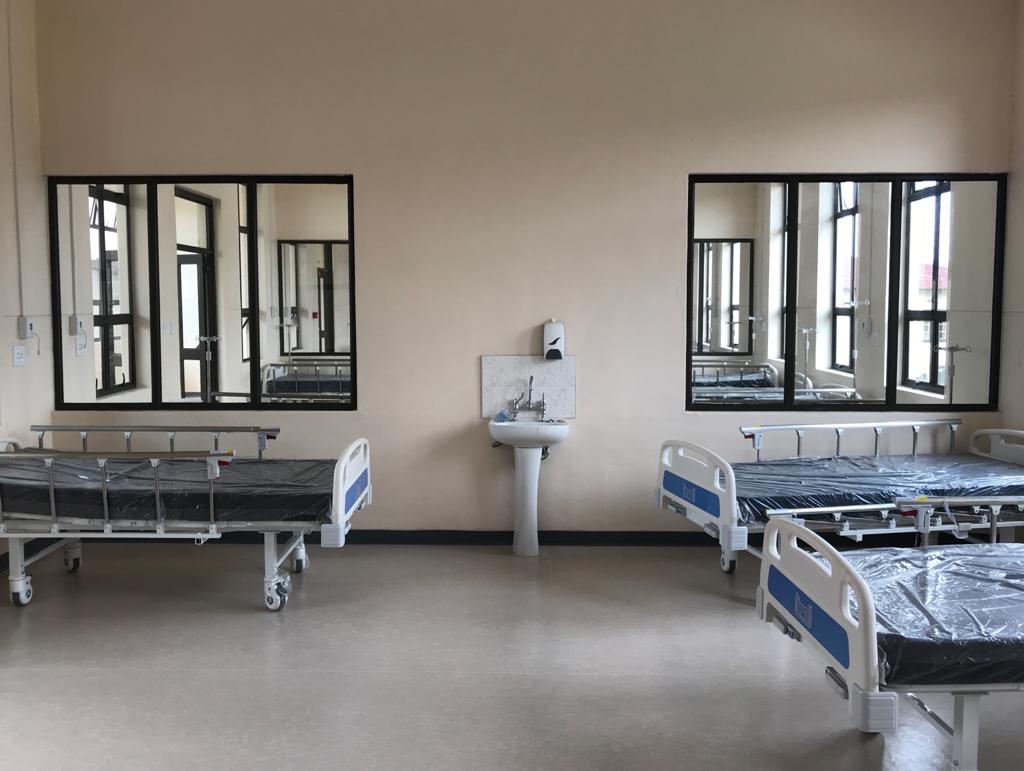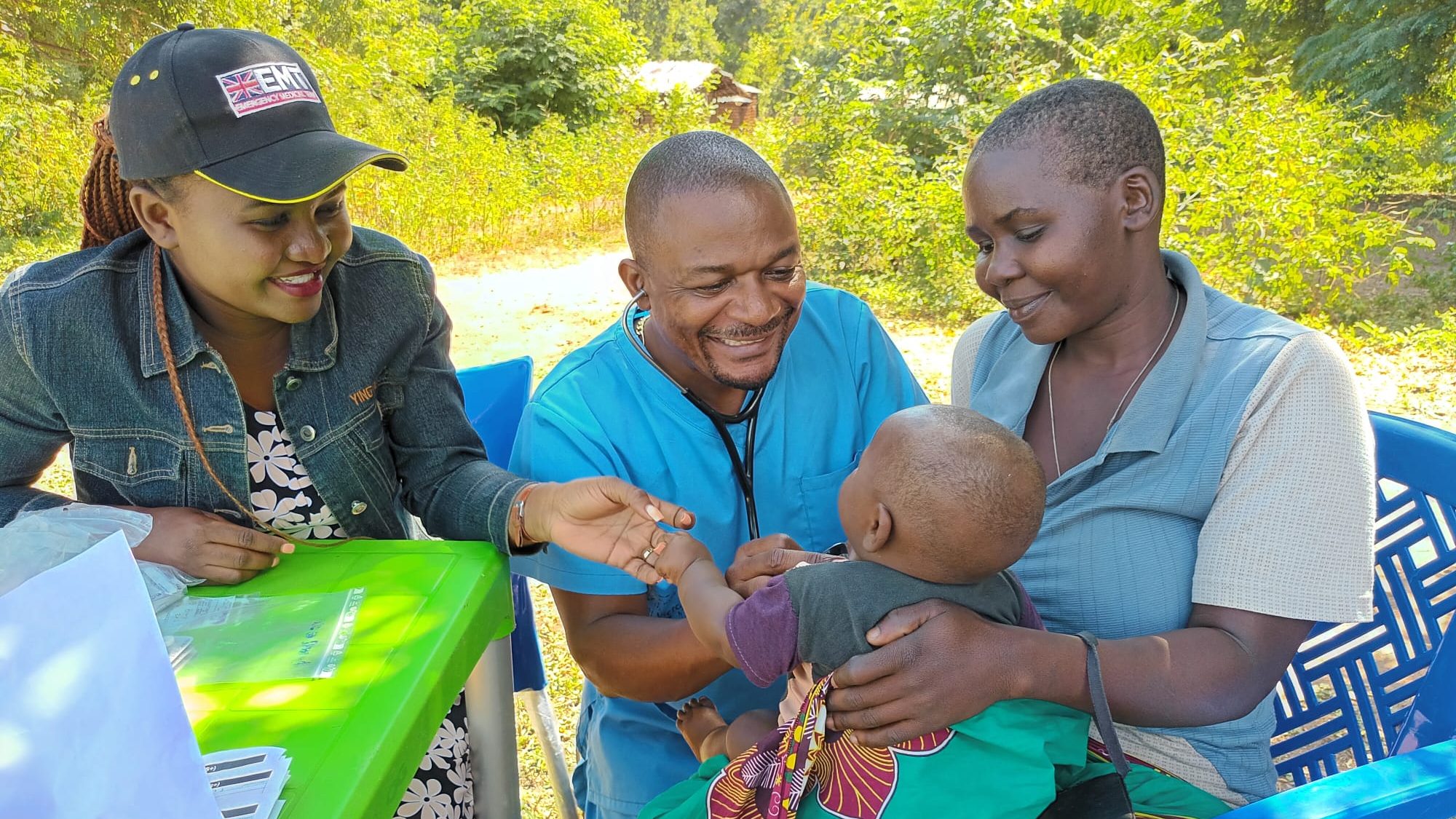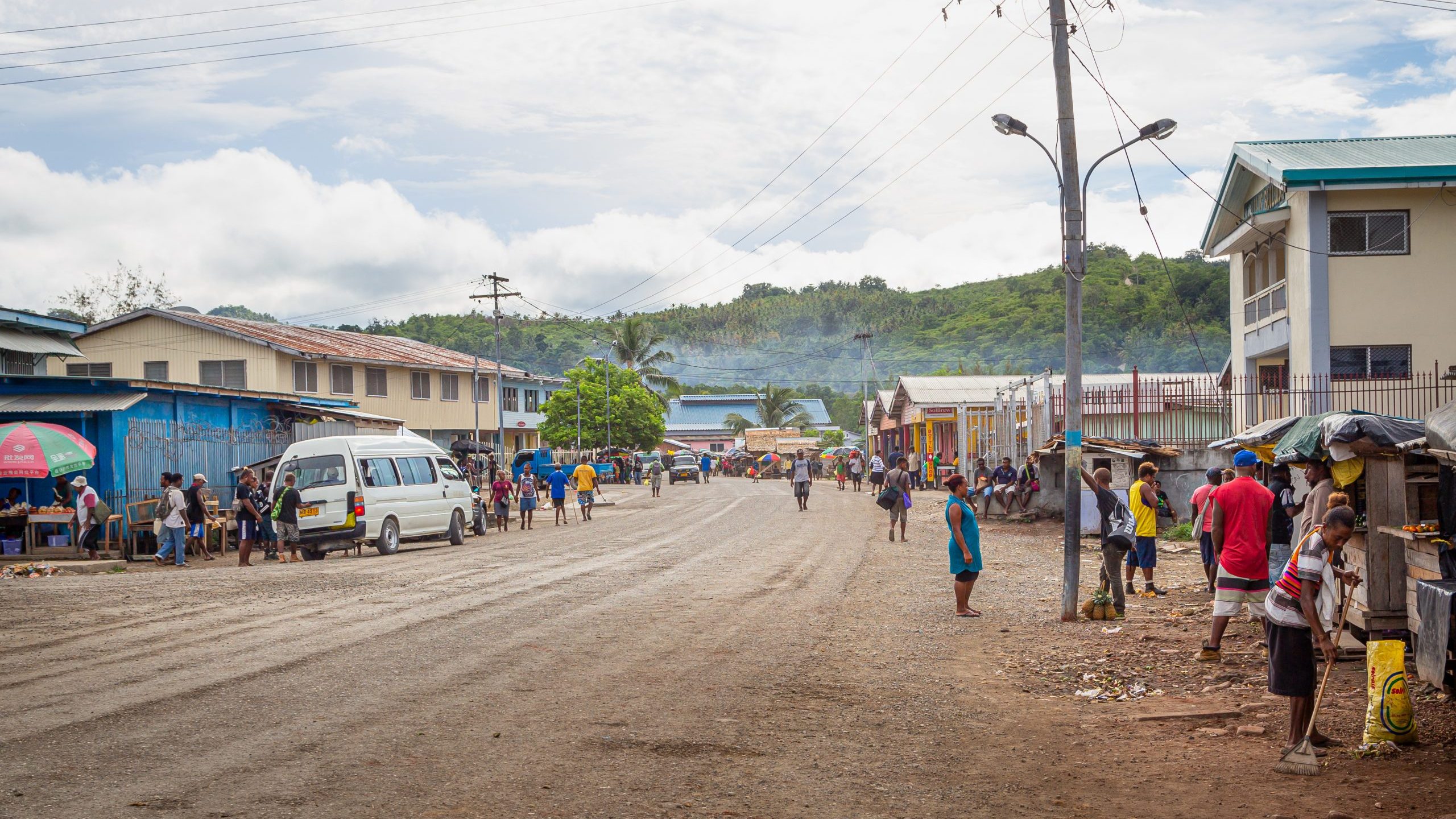

On January 26th, Orthopaedic Surgeon and UK-Med surgical lead Andy Kent led a team of 11 to Eswatini as part of the UK Emergency Medical Team response.
Humanitarian responses often shift in their scope, particularly with the unpredictable, global scale of coronavirus. For Andy, who has extensive military and humanitarian experience, including deployments in Mosul and Beirut, this was his first experience taking a leadership role in a humanitarian capacity.
On his return home, he reflects on the experience, how the deployment’s scope changed along the way, and his own learning experiences as Team Lead.
An overwhelmed healthcare system
In December 2020, Eswatini experienced a huge surge in coronavirus cases and an alarmingly high death rate, with four ministers, including Prime Minister Ambrose Dlamini, sadly dying from the virus.
“The healthcare system was massively overwhelmed,” Andy explains. “And at the same time Eswatini was experiencing a huge surge in cases, so was its neighbour (and “big brother”) South Africa, which is where most of their oxygen supply comes from.
“So, when the surge was at its peak, Eswatini just couldn’t replenish their oxygen capacity. It must be a horrendous situation for medical staff to be in – having to ration oxygen, essentially.”
By December 26, the country had reported 163 COVID related deaths. Within just one month, this had risen to 517.
“Staff found themselves in the really horrible situation of having nowhere to transfer patients because all the hospitals were full, and so they saw their death rate just going up. Staff had a really horrible time of it.”


Adjusting expectations
Following a request for help from the WHO and Eswatini Ministry of Health, the team of 11 arrived in Eswatini during the last week of January. However, in an unexpected turn, the case numbers had begun to drop, thanks to a number of contributing factors.
“That was quite a surprise to us,” Andy says. “We were anticipating being in the middle of a huge pandemic, and actually, the number of patients in hospital had dropped off quite significantly.
“We definitely had to adjust our mindset somewhat when we arrived.”
The team were allocated by the WHO to cover the city of Manzini and its two medical facilities, The Raleigh Fitkin Memorial Hospital and Mavuso Treatment Centre. It was here that they encountered a key issue that needed focus: staff fatigue and retraining.
“The strain from the second wave was still showing,” Andy notes. “Staff were obviously really exhausted and dreading the anticipated third wave.”
Taking the opportunity to prepare staff
“It’s a fine line to tread: you have to engage staff, but also try to show them how to do things better. And I think they appreciate it when if you’re honest with them.”
The team were able to use this lull in caseload as an opportunity to directly observe their protocols in action and then develop and deliver their training accordingly. They redirected their approach from patient directed informal teaching to classroom type teaching, where they provided staff retraining in IPC, wearing PPE and basic patient care. This has been essential to better prepare staff for a third wave and ensure both patient and staff safety.
Andy emphasises that, “One thing we didn’t want to do was to come in all heavy-handed and say, you know ‘we’re the great UK EMT, and you’ve been doing this all wrong’. In humanitarian work, you need to establish a good rapport with local staff.
“I actually used the UK’s experience as an ice breaker. I started off by saying, ‘hey, you know we have some of the worst results in the world, we’ve had to learn the lessons the hard way, but we are here to help the best we can and learn from these experiences.’
“It’s a fine line to tread: you have to engage staff, but also try to show them how to do things better. And I think they appreciate it when if you’re honest with them.”

Expanding to a national stage
Being flexible and able to adapt to new requirements is an essential attribute for emergency medical teams.
The team’s Biomedical Engineer, Sean Ryder, took on a bigger remit than expected. Initially, Sean was there to fix local hospital equipment, but after the Ministry of Health discovered the scope of his experience, they expanded his role to include developing a plan to achieve sustainable oxygen capacity across the country. This improved oxygen supply chain will be pivotal if Eswatini experiences a third wave.
“Likewise, Doctor Ngoni was initially tasked just to look after the RCCE (Risk Communication and Community Engagement) in the local Manzini region,” Andy says. “But again, his role was rapidly extended to becoming a national adviser.
“He rapidly found himself travelling throughout Eswatini to the four different regions to assess and advise the regional RCCE teams. In a similar way, he advised the Ministry of Health on ways they could improve community engagement.”

Administrative demands of leadership
“That's just the way humanitarian work is. Everything has to be documented and I'm just not used to that. I'm an orthopaedic surgeon - I see a broken bone, I fix it, and it's done!”
One more surprise for Andy came from the logistical side of being Team Lead: the paperwork.
“I had never led a humanitarian team before, and I did find that the administrative and logistical side of being team lead was quite a steep learning curve for me,” he says.
“That’s just the way humanitarian work is. Everything has to be documented and I’m just not used to that. I’m an orthopaedic surgeon – I see a broken bone, I fix it, and it’s done!”
When advising someone looking to take on a team lead role in humanitarian work, Andy recommends undertaking a team leader course and suggests deploying in a deputy team lead role first, if possible. “The more information you can get beforehand, the better. Having the support and backing of the admin team at UK-Med was critical,” he says.
“Being aware of the culture and what environment you’re going into is also really useful. Deploying with a culturally mixed team of vastly experienced healthcare workers from across Africa was extremely helpful… and very rewarding.”
Although Andy has now made his safe return home to Inverness, Scotland, the team will continue their vital work of preparing the country for any future waves of coronavirus for the next three weeks. Read more about UK-Med’s work in Eswatini.






No Comments